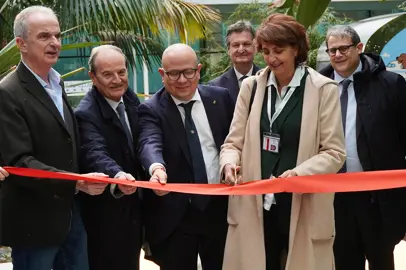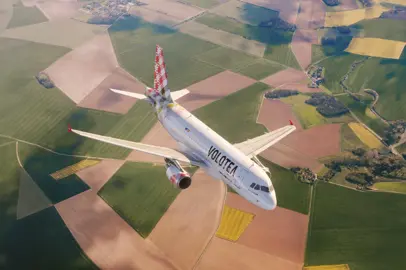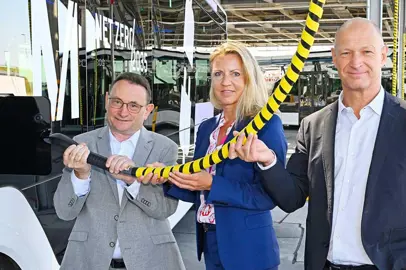Thai Airways strengthens course towards a sustainable future
Thai Airways International consolidates its sustainable development strategy, focusing on a model that integrates environmental, social and economic aspects to promote a fair and resilient future. A concrete commitment that translates into targeted projects, capable of combining innovation and enhancement of cultural roots.
Among the most recent initiatives stands out the renewal of the historic "Ruean Ton" uniform for flight attendants: a new design in Thai silk enriched with recycled fibers, which combines elegance and comfort while respecting the highest safety standards. Old uniforms were collected for the recovery of materials, while the "Zero Waste Living by THAI" project involves designers and creatives in the transformation of fabrics from discarded seats into accessories and design garments, in support of a true circular economy.
Even the on-board gastronomy becomes a vehicle of social responsibility with the "Good Taste for a Good Cause" program, which enhances local producers and offers passengers delights such as KanVela chocolate, DoiTung's Black Silk Blend coffee and cocktails inspired by the royal Thai tradition. This is complemented by the pre-selected meal service for Royal First Class and Royal Silk Class passengers (and Royal Orchid Plus Platinum and Gold in Economy members) on international flights from Bangkok: an attention that improves the onboard experience and, thanks to advance planning, reduces food waste.
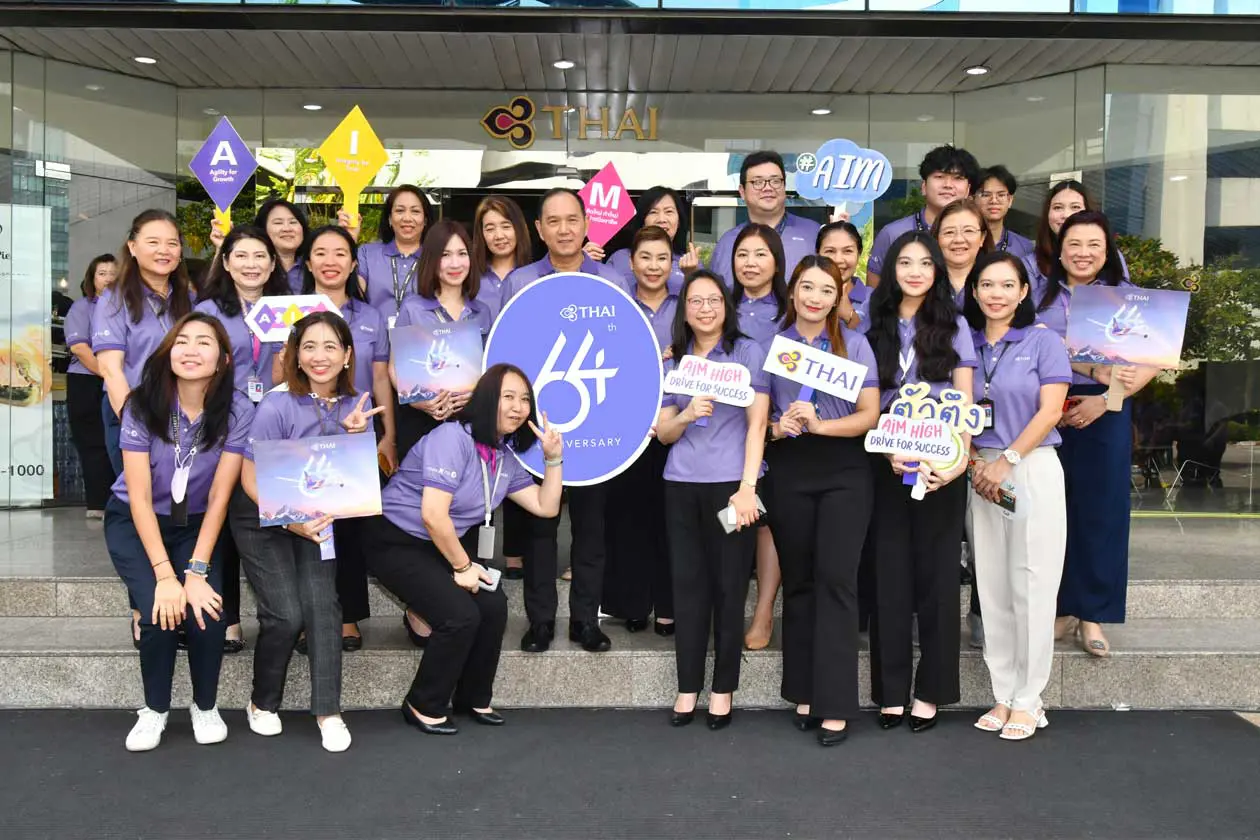
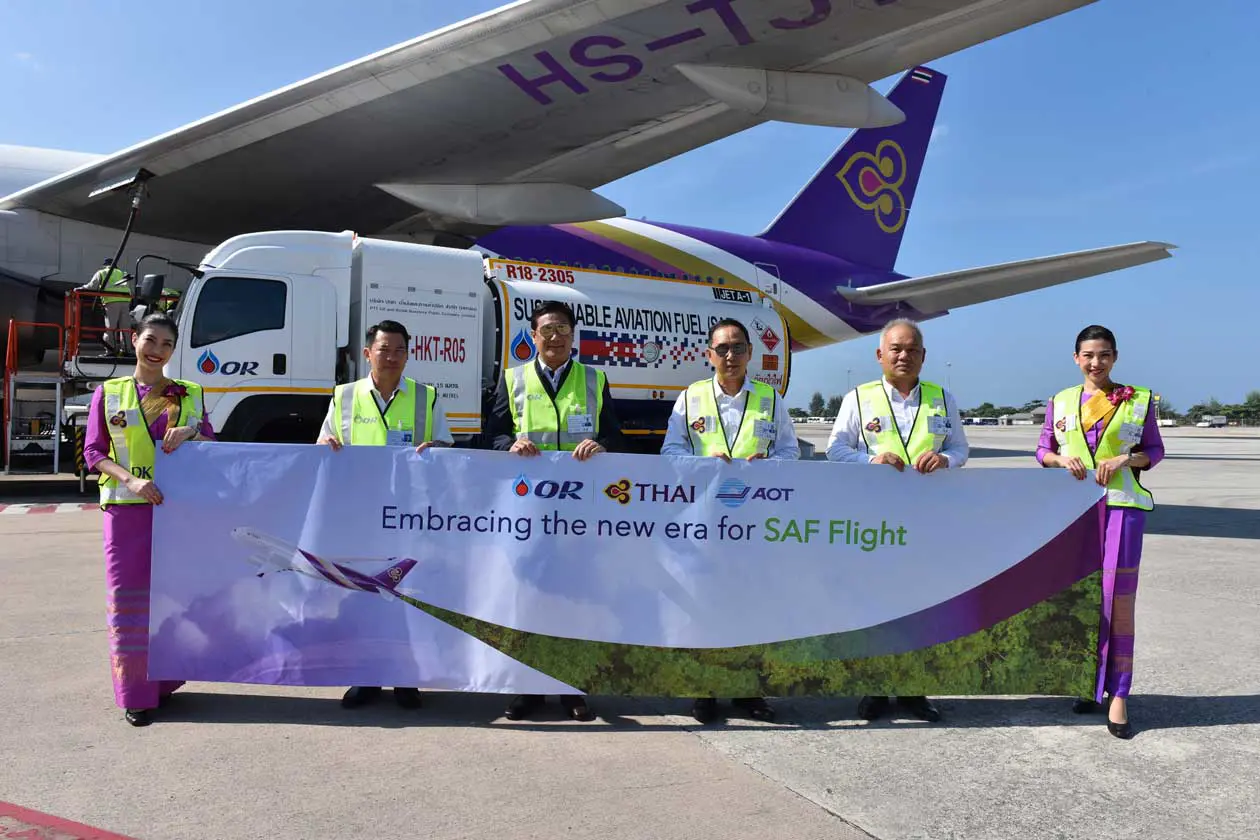
On the environmental front, THAI has joined the "Carbon Footprint for Organization" program promoted by the Thailand Greenhouse Gas Management Organization (TGO), committing to achieving carbon neutrality by 2050. The company has already introduced limited-edition biodegradable amenity kits made in collaboration with the Sirivannavari brand, and encourages recycling with the use of regenerated stainless steel cups.
The "green" strategy also involves fleet renewal, with aircraft rationalisation to optimise costs and reduce environmental impact, and the adoption of sustainable aviation fuels (SAF). These fuels, compatible with ICAO and EU standards, were tested as early as 2019 on Bangkok–Stockholm flights, in partnership with PTT Oil and Retail Business.
Thanks to careful route optimization work and the implementation of the TAFS (Thai Airways Flight Planning System), in 2023 alone, the company avoided the emission of around 171,339 tons of CO₂.
